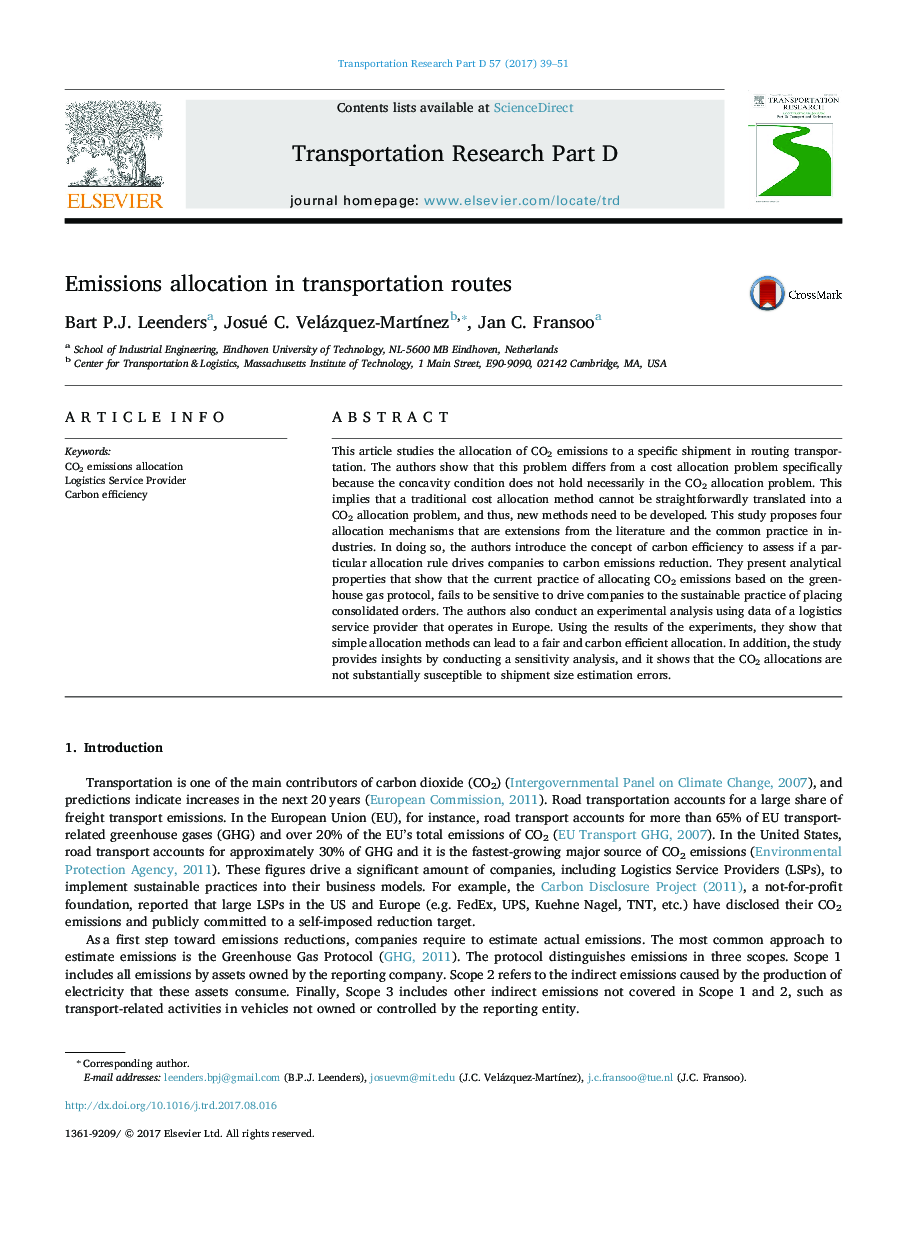| Article ID | Journal | Published Year | Pages | File Type |
|---|---|---|---|---|
| 5119299 | Transportation Research Part D: Transport and Environment | 2017 | 13 Pages |
â¢We study the allocation of CO2 emissions in routing transportation problems.â¢We present four allocation mechanisms.â¢We propose a criterion to assess if allocation rules drive emissions reductions.â¢The CO2 allocation using the GHG protocol does not drive emissions reductions.â¢The proposed allocation methods are not susceptible to shipment estimation errors.
This article studies the allocation of CO2 emissions to a specific shipment in routing transportation. The authors show that this problem differs from a cost allocation problem specifically because the concavity condition does not hold necessarily in the CO2 allocation problem. This implies that a traditional cost allocation method cannot be straightforwardly translated into a CO2 allocation problem, and thus, new methods need to be developed. This study proposes four allocation mechanisms that are extensions from the literature and the common practice in industries. In doing so, the authors introduce the concept of carbon efficiency to assess if a particular allocation rule drives companies to carbon emissions reduction. They present analytical properties that show that the current practice of allocating CO2 emissions based on the greenhouse gas protocol, fails to be sensitive to drive companies to the sustainable practice of placing consolidated orders. The authors also conduct an experimental analysis using data of a logistics service provider that operates in Europe. Using the results of the experiments, they show that simple allocation methods can lead to a fair and carbon efficient allocation. In addition, the study provides insights by conducting a sensitivity analysis, and it shows that the CO2 allocations are not substantially susceptible to shipment size estimation errors.
